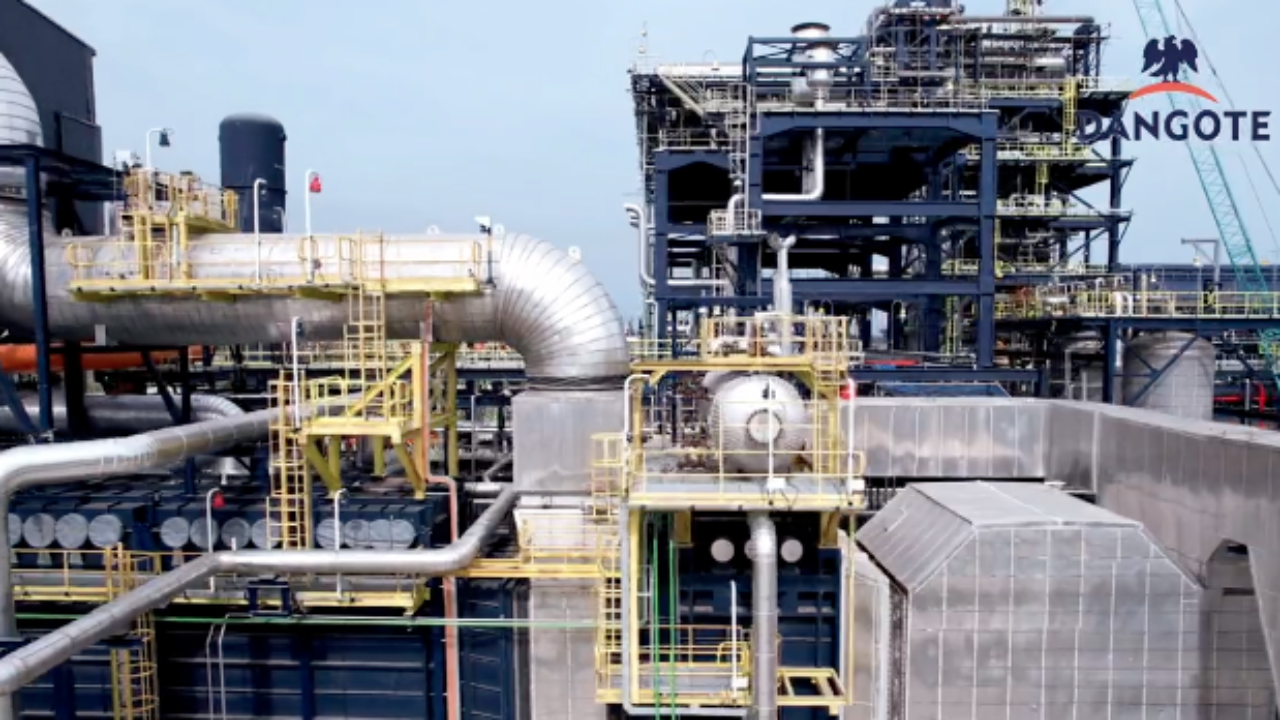News
Cheers As Dangote Slashes Diesel Price To N1,000 Per Litre

The Dangote Petroleum Refinery has responded to the requests of oil marketers regarding the decrease in the price of Automotive Gas Oil, commonly known as diesel.
On Tuesday, the refinery declared a price cut for diesel from N1,200/litre to N1,000/litre, a decision that brought joy to participants in the downstream oil industry.
This announcement was made by the spokesperson of Dangote refinery, Nduka Chiejina, in a statement released on Tuesday.
The statement read in part, “In an unprecedented move, Dangote Petroleum Refinery has announced a further reduction of the price of diesel from N1200 to N1,000/litre.
“While rolling out the products, the refinery supplied at a substantially reduced price of N1,200/litre three weeks ago, representing over 30 per cent reduction from the previous market price of about N1,600/litre.
“This significant reduction in the price of diesel at Dangote Petroleum Refinery is expected to positively affect all the spheres of the economy and ultimately reduce the high inflation rate in the country.”
The PUNCH had earlier reported that oil marketers have requested a decrease in the pump price of diesel produced by the Dangote Petroleum Refinery to a range between N700 and N850 per litre.
The operators have also disclosed their intention to hold discussions with the refinery’s management this week, as outlined in the report.
In response to the price adjustment on Tuesday, Mohammed Shuaibu, the Secretary of the Independent Petroleum Marketers Association of Nigeria, Abuja-Suleja Branch, expressed his joy with the latest announcement by the Dangote Refinery saying it was a welcome development.
He expressed optimism that the development will enhance competition in the downstream sector, ultimately benefiting numerous Nigerians.
“Such competition would create room for more price reduction and we are going to start seeing the positive impact on the cost of goods and services on the long run,” Shuaibu noted.
On his part, the Executive Secretary of the Major Energies Marketers Association of Nigeria, Clement Isong, said, “I have not heard about it yet. But I will be excited if it is true. It is good news.”
IPMAN, in an interview with journalists last week, emphasized the need for a reduction in diesel price.
They clarified that the high cost of N1,225/litre for the commodity from the indigenous refinery was due to local production in Nigeria, not importation.
Nation Post reports that the Petroleum Products Retail Outlets Owners Association of Nigeria also echoed the call for a decrease in the price of Dangote diesel. Both groups urged the Federal Government to intervene and requested the refinery managers to take into account the expensive logistics involved in transporting the product from Lagos, where the refinery is situated.
Oil marketers highlighted that some importers are landing the product in Nigeria at N1,250/litre due to the naira’s appreciation against the dollar. They argued that this should prompt the Dangote refinery, producing diesel locally, to lower its price.
The oil marketers further noted that diesel from the Dangote refinery does not incur vessel costs, import charges, or other expenses associated with importing the commodity into Nigeria.